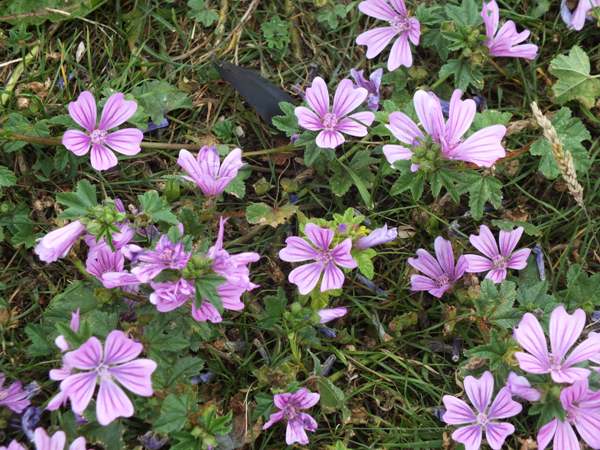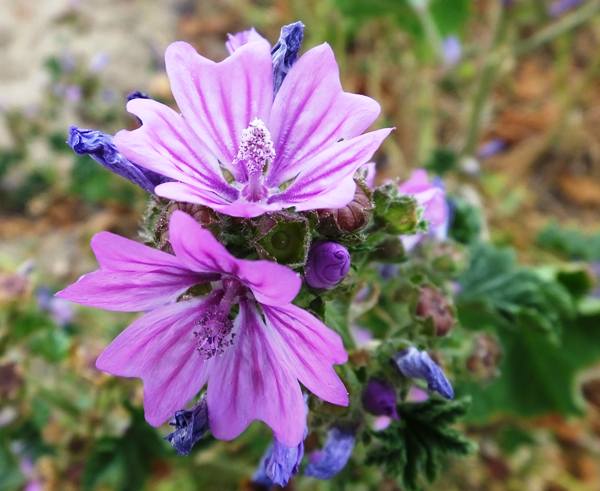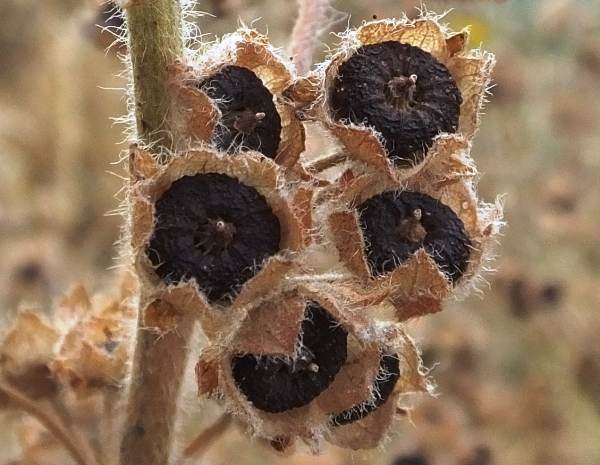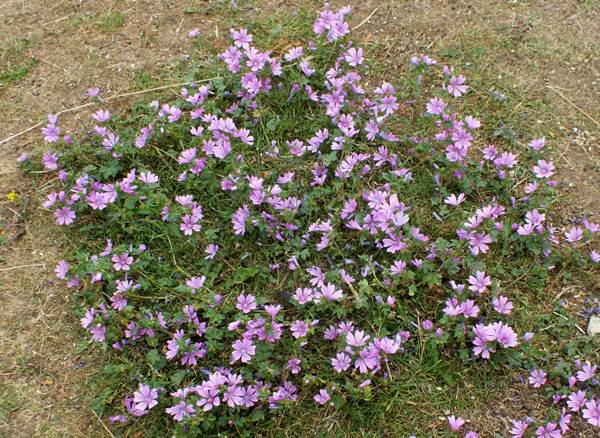Malva sylvestris - Common Mallow
Phylum: Magnoliophyta - Class: Equisetopsida - Order: Malvales - Family: Malvaceae

There are many kinds of mallows in Britain, but one of the most common species is Malva sylvestris, a plant which, although not truly native to Britain, was probably introduced in Roman times and is now widely naturalised.
Description
A spreading biennial or perennial plant up to 1.2 metres tall, Common Mallow has pale mauve, flared funnel-like flowers typically 3 to 5cm across and with five open petals each with deep purple stripes. The leaves have five lobes, and the stalks are covered in fine hairs.

The Fruits of Malva sylvestris are produced in toroidal discs each comprising several individual seeds (rather like the segments of Dairylea cheese). The torroid is plugged with a pointed central core and backed by five broad hairy sepals. From this feature Common Mallow has gain its alternative common name of Cheesecake.

Habitat
Common Mallow likes dry conditions and is often seen on roadside verges and in coastal sand dunes. The flowers, which are typically 30mm to 60 mm across, have five notched pale pink petals each with three darker pink or purple radial stripes.

Distribution
Common Mallow is found throughout Ireland and across most of Britain except north-east Scotland and is particularly common along the coast of Wales and south-west England. This plant also occurs in many parts of mainland Europe including Slovenia and other Central European countries.
Blooming Times
In Britain and Ireland, Common Mallow can be seen flowering from June through to October. The pictures shown on this page were taken in Wales during July.
Similar species
A close relative, with finely divided leaves, is the Musk Mallow, which thrives in the fertile soil near rivers and lakes.
Sue Parker's latest ebook is a revised and enlarged edition of Wild Orchids in The Burren. Full details here...
Buy it for just £5.95 on Amazon...
Please Help Us: If you have found this information interesting and useful, please consider helping to keep First Nature online by making a small donation towards the web hosting and internet costs.
Any donations over and above the essential running costs will help support the conservation work of Plantlife, the Rivers Trust and charitable botanic gardens - as do author royalties and publisher proceeds from books by Pat and Sue.

